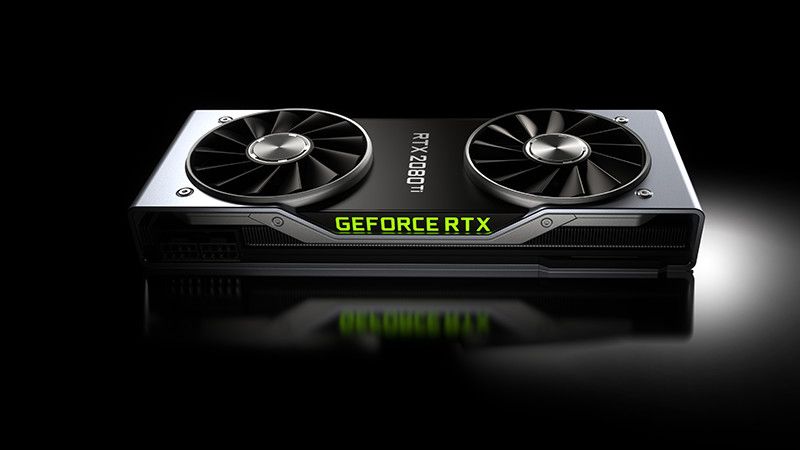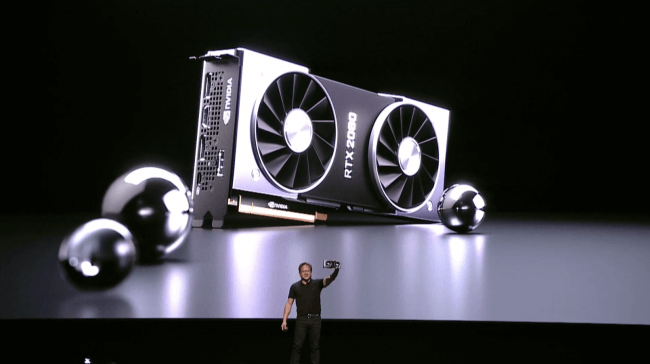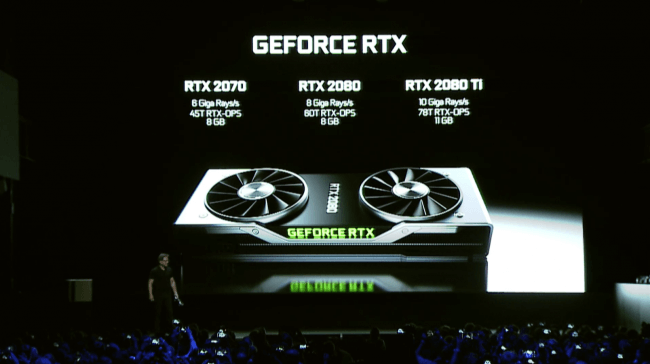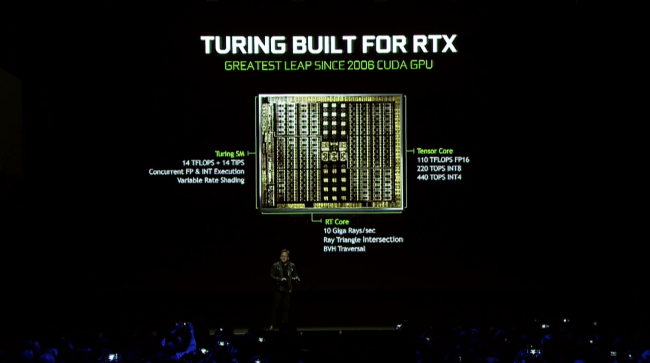
It's been a while since we've seen new cards from Nvidia. But, Nvidia has at last announced the GeForce RTX 2080 at Gamescom 2018 in Cologne, Germany.
The first we've seen mention of the official product was through a leaked product page during Nvidia's own press conference at the show, alongside the RTX 2080 Ti and RTX 2070.
Heading into the RTX 2080 reveal at Gamescom, all we had to go off of was speculation and rumors. We didn't know whether the RTX 2080 was going to be based around Volta (an architecture some high-end GPUs have been using for a few months now), Ampere and Turing, the latter of which ended up being the force behind the GeForce RTX 2080.
Thankfully, Nvidia is has lifted the veil on the RTX 2080, powered by the Turing graphics processor.
Even with recent rumors of what was going to be showing up today, there was a bit of confusion as to the name of the RTX 2080. For the longest time, all the rumors pointed to the next cards being the GTX 1180 – until very recently. Now, we're sure it's the RTX 2080.
Cut to the chase
What is it? Nvidia’s next-generation flagship graphics card
When is it out? September 20 2018
How much will it cost? $699 (£749, AU$1,199)

Nvidia GeForce RTX 2080 release date
All of the speculation about the next generation of Nvidia’s cards seemed to coalesce on a Gamescom 2018 announcement. Nvidia themselves have released a teaser video hinting towards a reveal on August 20 at Gamescom.
Now, with all of the rumors and leaks behind us, we know for certain that three Nvidia RTX 20 Series graphics cards, including the RTX 2080, will launch on September 20.
This means that the products should be available in stores and for general online order on that day, and pre-orders processed today on August 20 (at the time of writing) should ship on that same day: September 20.

Nvidia GeForce RTX 2080 price
This is where things might get a little tricky, as Nvidia is currently talking about two prices regarding its new RTX graphics cards at the time of writing. There are the prices that Nvidia CEO Jen-sen Huang announced on-stage and those found on Nvidia's own website. Here's what Huang said on stage:
Nvidia GeForce RTX 2080 Ti: $999 (about £753, AU$1,388)
Nvidia GeForce RTX 2080: $699 (about £527, AU$936)
Nvidia GeForce RTX 2070: $499 (about £376, AU$668)
Now, here's what the prices are listed at on Nvidia's website, which you can pre-order the RTX 2080 and 2080 Ti from right now. Spoiler alert: they're much higher:
Nvidia GeForce RTX 2080 Ti: $1,199 (AU$1,899, about £904)
Nvidia GeForce RTX 2080: $799 (AU$1,199, about £602)
Nvidia GeForce RTX 2070: $599 (AU$899, about £451)
For reference, the Nvidia GeForce GTX 1080 Ti and Nvdia GTX 1080 came with starting prices at $699 (£679, AU$1099) and $599 (£600, AU$925), respectively.
So, regardless of which price being the real deal, these cards are markedly more expensive than previous launches. This is likely why Nvidia's spending a lot of effort on educating the masses on ray tracing and its benefits, as this is a key feature of the graphics cards that's likely costly to produce.

Nvidia GeForce RTX 2080 specs
This is the exciting part of the article. In May, the reported specs of the Nvidia GeForce RTX 2080 were spotted in the TechPowerUp GPU database, and they were looking juicy. However, now we know the real deal, and while they're still impressive, you should level your expectations a bit regarding the core specifications.
The Nvidia GeForce RTX 2080 was widely expected to be more powerful than even the Nvidia Titan Xp, the most powerful consumer graphics card on the market right now. However, that's not necessarily the case on paper – the Titan Xp still has more CUDA cores and more video memory capacity.
Here's how the RTX 2080 shakes out in the most essential specifications, that being clock speed, video memory capacity and video memory speed:

As you can see, Nvidia beefed up its Founders Edition card for early adopters, namely in the processor speed area, which is the one you can pre-order right now (before September 20). You can see that the basic RTX 2080 actually has a slightly lower clock speed than its predecessor, the GTX 1080.
However, this update brings with it vastly improved GDDR6 video memory, which operates at 4 Gbps faster data transfer speeds than the previous model.
Beyond that, Nvidia isn't focused on the speeds of feeds of these graphics cards, necessarily, but rather the technology that its Turing graphics processors enables – particularly, real-time ray tracing and machine learning for advanced rendering.
The RTX 2080 supports the latest in video rendering and output standards, as well daisy-chaining graphics cards via the SLI protocol using the additional Nvidia RTX NVLink Bridge part, which costs $79 (about £59, AU$105). The card can support up to an 8K (7,860 x 4,320) video resolution, and has a 215W thermal design power rating.
Chances are, with this part, you're going to need to upgrade at least one other piece for it to run smoothly, namely if you have a power supply that's doesn't have ample wattage to throw around.
That wraps it up for now regarding the Nvidia RTX 2080 – stay tuned for more information and insights as well as a full review.
Joe Osborne has also contributed to this report.
Source:techradar
- ប្រសិនបើលោកអ្នក ចង់បាន អត្ថបទទាំងនេះ សូមទាក់ទង មកលេខ 097 57 90000 / 070 57 9000 ឬតាមរយៈ អ៊ីមែល [email protected]

















